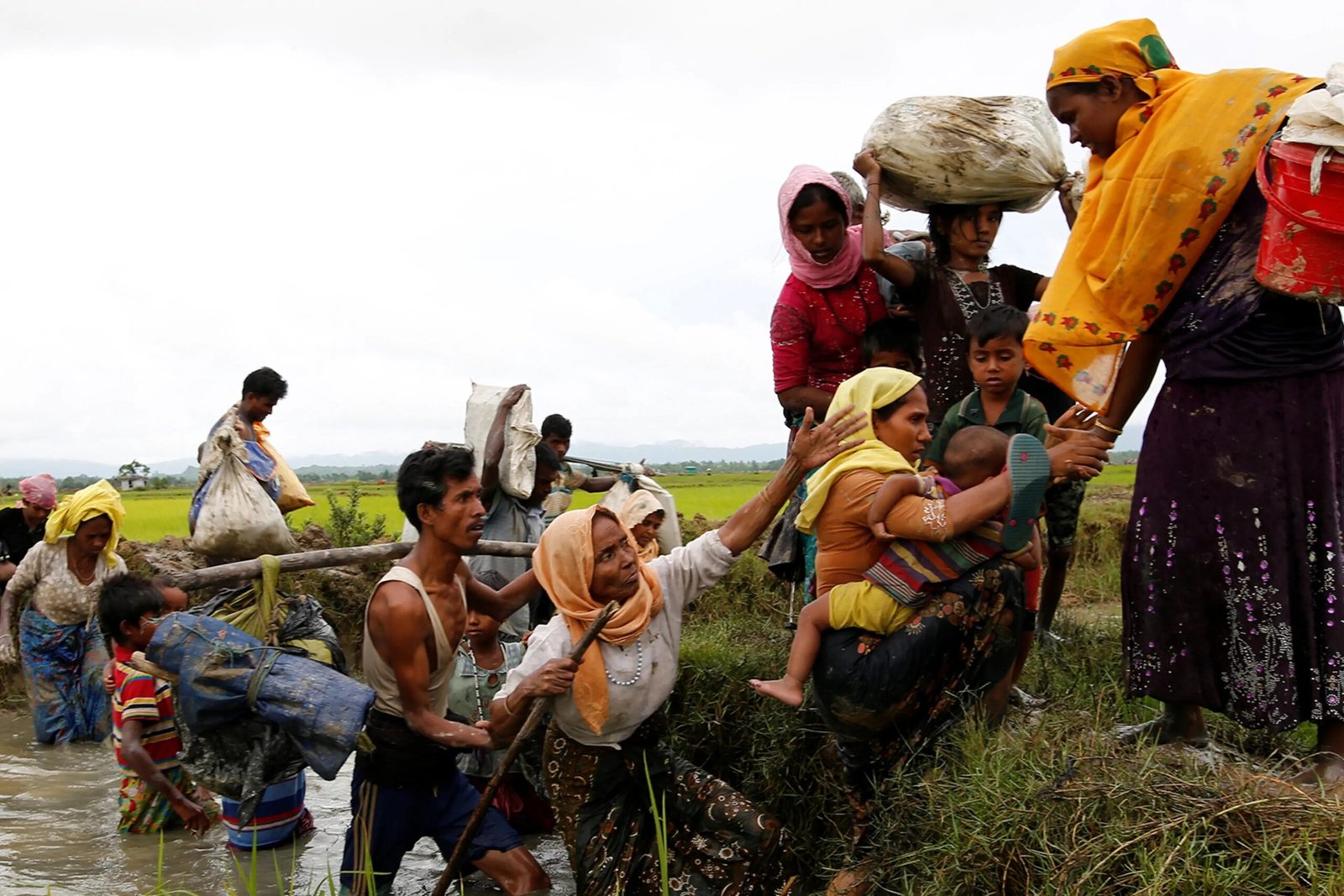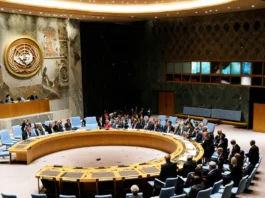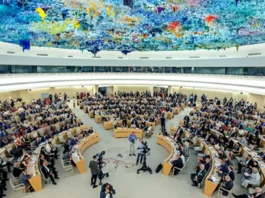Overview of the UN General Assembly Meeting
On September 30, 2025, the United Nations convened a high-level meeting specifically addressing the urgent and ongoing Rohingya crisis. This critical assembly brought together key stakeholders from the international community, including member states, humanitarian organizations, and civil society representatives, to evaluate the current situation and to advocate for effective solutions. The primary purpose of the meeting was to elevate global awareness regarding the dire circumstances faced by the Rohingya and other marginalized minorities within Myanmar, who have endured significant hardships due to conflict and persecution.
The meeting was timely, given the escalating humanitarian crisis resulting from years of displacement and violence. Participants were urged to consider the alarming conditions at refugee camps and the lack of basic needs that continue to confront those seeking refuge. A comprehensive assessment of the ground situation in Myanmar was central to the discussions, emphasizing the importance of collecting reliable data to inform international responses. By shedding light on the realities on the ground, the assembly aimed to foster a cooperative approach among nations to address these pressing humanitarian concerns.
Key objectives outlined during the meeting included the formulation of a time-sensitive action plan that focuses on ensuring the safe and dignified return of displaced Rohingya individuals to their homeland. The necessity for collaborative partnerships and urgent financial commitments was underscored, encouraging nations to take proactive measures in supporting both immediate relief efforts and long-term resolutions. Through this assembly, the United Nations sought to fortify its commitment to human rights and humanitarian values, galvanizing the global community to unite in responding to the Rohingya crisis effectively.
Humanitarian Crisis: Current Conditions and Needs
The Rohingya population has been experiencing one of the most severe humanitarian crises of the 21st century. The United Nations reports that over 1.2 million Rohingya people are currently in dire need of assistance within Myanmar, where they have faced systemic discrimination and violence. The situation is compounded by the fact that more than 900,000 Rohingya are living in refugee camps in neighboring countries, such as Bangladesh, where their basic needs remain unmet.
Within these camps, living conditions are deplorable. Families often lack adequate shelter, water, and sanitation facilities. The overcrowding of camps exacerbates health issues, making the population susceptible to communicable diseases. UNICEF has highlighted that among the children living in these conditions, malnutrition rates are critically high, with about 40% suffering from stunted growth and other long-term developmental impacts. These alarming statistics present an urgent call for action from the international community.
Furthermore, inadequate funding for humanitarian responses has been a persistent obstacle. The financial requirements for addressing the crisis are substantial. For instance, the UN’s Humanitarian Response Plan for the Rohingya crisis appealed for approximately $1 billion; however, a significant shortfall remains, hindering delivery of essential services. Despite various countries pledging assistance, bureaucratic delays and funding gaps continue to impede effective humanitarian efforts on the ground.
In light of these challenges, officials and humanitarian agencies have issued urgent calls for immediate support to avert further deterioration of the already fragile conditions. Without prompt intervention, the Rohingya population risks entering an even more precarious state, underscoring the importance of sustained commitment and collaborative efforts to enhance humanitarian responses and protect their rights.
Call for Justice and Repatriation Efforts
The ongoing Rohingya crisis has sparked urgent calls for justice and accountability among nations and international organizations. Numerous speakers at the UN General Assembly have framed the situation as one of genocide, underscoring the severe human rights violations that the Rohingya people have endured. These characterizations have heightened calls for international legal action, including the prospect of a referral to the International Criminal Court (ICC). Such referrals could pave the way for investigating State and military officials implicated in these atrocities, holding them accountable for their actions against the Rohingya population.
Advocacy for justice is not merely an abstract concept; it represents the fundamental need for recognition of the suffering endured by countless Rohingya individuals and families. Furthermore, international legal frameworks offer the hope of accountability and the prevention of future atrocities. The demand for systematic investigations and the prosecution of those responsible reflects a broader commitment to upholding international law, which seeks to protect vulnerable populations from ongoing violence and discrimination.
In addition to calls for justice, there is a pronounced focus on the importance of repatriation efforts for Rohingya refugees. Ensuring the safe and dignified return of those displaced by the violence in Myanmar is critical for any lasting resolution to the crisis. Repatriation must take place in a manner that guarantees the fundamental rights of returnees, addressing their safety and well-being. Comprehensive measures should include providing robust legal protections, restoring citizenship rights, and offering necessary support for reintegration into their home communities.
Ultimately, the road to recovery for the Rohingya people will depend on effective and coordinated efforts from the international community to ensure justice and facilitate safe repatriation. Only through collective action can there be hope for rebuilding a future where the rights and dignity of the Rohingya are fully recognized and upheld.
International Responses and Divergent Perspectives
The Rohingya crisis, characterized by widespread human rights violations and mass displacement, has elicited varied responses from the international community. Countries such as the United States and the United Kingdom have been vocal in their condemnation of Myanmar’s military junta, which is perceived to be responsible for the significant atrocities against the Rohingya population. These nations have pledged substantial humanitarian aid, advocating for human rights and the safe, voluntary return of displaced individuals to their homes. The emphasis placed on human rights by these Western nations underscores a commitment to international norms and humanitarian principles.
In contrast, nations like China and Russia adopt a more nuanced stance, often prioritizing state sovereignty over human rights concerns. China, a significant ally of Myanmar, has focused on the need for stability in the region, suggesting that external interference may exacerbate the situation. Similarly, Russia has emphasized respect for Myanmar’s territorial integrity, advocating for dialogue instead of confrontation. This divergence in perspectives highlights the complex geopolitical dynamics at play, where strategic interests often overshadow humanitarian considerations.
Japan has attempted a middle ground; while providing aid and calling for respect for human rights, it has also shown a level of caution in openly criticizing the Myanmar government. Its approach suggests a willingness to engage diplomatically without jeopardizing its regional relationships. Furthermore, representatives from the ousted Myanmar government have been active in international forums, condemning the military junta and appealing for global support against its actions. This emphasis on legitimacy resonates among pro-democracy advocates but complicates collective international efforts.
These divergent international responses reveal a fragmented approach to addressing the Rohingya crisis. It is evident that cohesive action is urgently needed to address the complex challenges posed by this humanitarian catastrophe effectively. Perspectives range widely, therefore, aligning on a comprehensive strategy is imperative to foster sustainable solutions for the Rohingya community.





This design is wicked! You obviously know how to keep a reader entertained. Between your wit and your videos, I was almost moved to start my own blog (well, almost…HaHa!) Great job. I really enjoyed what you had to say, and more than that, how you presented it. Too cool!